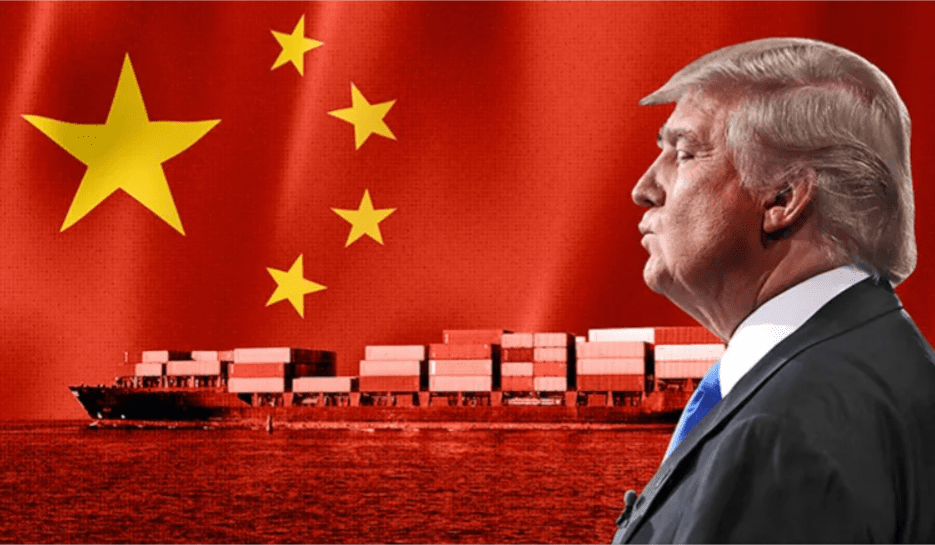Faith & Reflection: Voices from the Black Church and Beyond
1
(ThyBlackMan.com) When Donald Trump first campaigned in 2015, he capitalized on a potent narrative: that China’s rise gutted American manufacturing, leaving countless blue-collar communities devastated. Known now as the “China shock,” that idea paved the way for a dramatic resurgence in protectionism, culminating in sweeping tariffs including Trump’s controversial “Liberation Day” duties. Yet we continue to learn just how shaky the theory’s foundations are.
Pioneered by economists David Autor, David Dorn and Gordon Hanson, it suggests that American regions heavily exposed to Chinese imports suffered significantly greater job losses than did less-exposed areas. Populists seized upon it to argue that China’s 2001 accession to the World Trade Organization caused millions of job losses in the U.S. and social disintegration.
But a theory’s easy and outsized application to policy does not settle questions about its accuracy. That’s what American Enterprise Institute scholar Scott Winship set out to determine in a recent comprehensive review that set out to prove whether the China shock reduced American manufacturing employment.
By examining alternative studies and methodological adjustments, Winship contends that the negative effects of trade with China have been significantly exaggerated and that populist narratives blaming this trade for U.S. economic decline aren’t supported by rigorous evidence.
The originators of the China shock theory examined how Chinese imports affected certain U.S. locales compared with others — not with the entire country — based on initial industry composition and employment size. By these metrics, areas heavily exposed to Chinese imports showed disproportionately worse manufacturing job losses.
However, Winship points out that even if we accept these estimates, the findings suggest only relatively modest employment effects.
To put things in perspective, Winship gives the example of two hypothetical commuting zones with 200,000 working-age residents and 20,000 manufacturing workers. Data from the theory’s proponents indicate that moving from low (10th percentile) to high (90th percentile) exposure to Chinese imports would result in a loss of roughly 2,700 manufacturing jobs — just a 1.4-percentage-point drop in overall manufacturing employment.
While significant, this does not convincingly explain the community decline, social disruption and populist backlash often blamed specifically on Chinese trade.
In addition, Winship flags multiple methodological issues. Once other economists revised the proponents’ methods, the estimated negative impact shrank dramatically. Various followup studies found the China shock effect on manufacturing employment to be 50% smaller than initially claimed.
Further research revealed that job losses in exposed areas were often offset or even outweighed by employment gains in other sectors. One detailed Census Bureau study even found that firms with greater Chinese import exposure increased manufacturing employment, reallocating jobs to more efficient domestic production lines enabled by cheaper imports.
Moreover, the steady decline in U.S. manufacturing employment began decades before China’s WTO entry. Between the late 1970s and 2000, factory employment had already decreased substantially, mostly because of technological advances and shifting consumer demand.
Notably, there was no sudden acceleration of this decline after China joined the WTO. The rate of manufacturing job losses remained consistent with earlier trends, undermining claims that Chinese trade uniquely devastated American manufacturing.
Furthermore, former manufacturing workers generally did not face permanent unemployment. In fact, unemployment rates among this group were lower in recent years compared to the late 1990s, before the peak of Chinese imports. Many workers transitioned successfully into other sectors, belying the notion of an enduring displacement crisis. It’s also worth noting that there are around half a million unfilled manufacturing jobs today.
Despite these realities, the exaggerated narrative persists as a political force. Trump’s tariffs — taxes on American consumers raising prices on everyday goods from cars to clothing — have greatly increased economic uncertainty. American manufacturers reliant on imported components face higher input costs, dampening their competitiveness and causing unintended layoffs.
In fact, evidence from Trump’s first term showed that his tariffs often hurt American firms more than their foreign competitors. With broader and higher tariffs, we can only fear the worst.
Instead of doubling down on tariffs and isolation, we need to empower U.S. workers to adapt to economic changes, whether caused by trade or economic downturn. Economists have shown that to the extent that workers sometimes don’t recover from shocks, it tends to be a failure to adjust because of obstacles erected by government.
Winship’s critical reassessment of the China shock clarifies the actual, limited role Chinese imports have played in manufacturing-employment trends. The real “shock” America faces in 2025 is not from Chinese imports but from a resurgence of misguided protectionism based on a misdiagnosed problem. The path forward harnesses trade’s real benefits rather than chasing economic illusions.
Written by Veronique de Rugy
Official website; http://twitter.com/veroderugy
Read the full article on the original source


